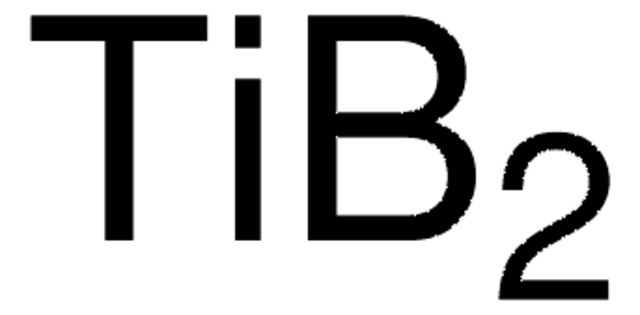692824
Tantalum
powder, 60-100 mesh, 99.9%
Synonym(s):
Ta
About This Item
Recommended Products
vapor pressure
<0.01 mmHg ( 537.2 °C)
Assay
99.9%
form
powder
autoignition temp.
572 °F
reaction suitability
reagent type: catalyst
core: tantalum
resistivity
13.5 μΩ-cm, 20°C
particle size
60-100 mesh
bp
5425 °C (lit.)
mp
2996 °C (lit.)
density
16.69 g/cm3 (lit.)
SMILES string
[Ta]
InChI
1S/Ta
InChI key
GUVRBAGPIYLISA-UHFFFAOYSA-N
Signal Word
Danger
Hazard Statements
Precautionary Statements
Hazard Classifications
Flam. Sol. 1
Storage Class Code
4.1B - Flammable solid hazardous materials
WGK
nwg
Flash Point(F)
Not applicable
Flash Point(C)
Not applicable
Choose from one of the most recent versions:
Certificates of Analysis (COA)
Don't see the Right Version?
If you require a particular version, you can look up a specific certificate by the Lot or Batch number.
Already Own This Product?
Find documentation for the products that you have recently purchased in the Document Library.
Articles
Biomedical implants are essentially foreign substances within the human body that must survive many years’ exposure to demanding mechanical and physiological conditions. Despite these challenges, metal implants have been widely used to substitute for or rebuild hard tissues such as bones and teeth.
Our team of scientists has experience in all areas of research including Life Science, Material Science, Chemical Synthesis, Chromatography, Analytical and many others.
Contact Technical Service






